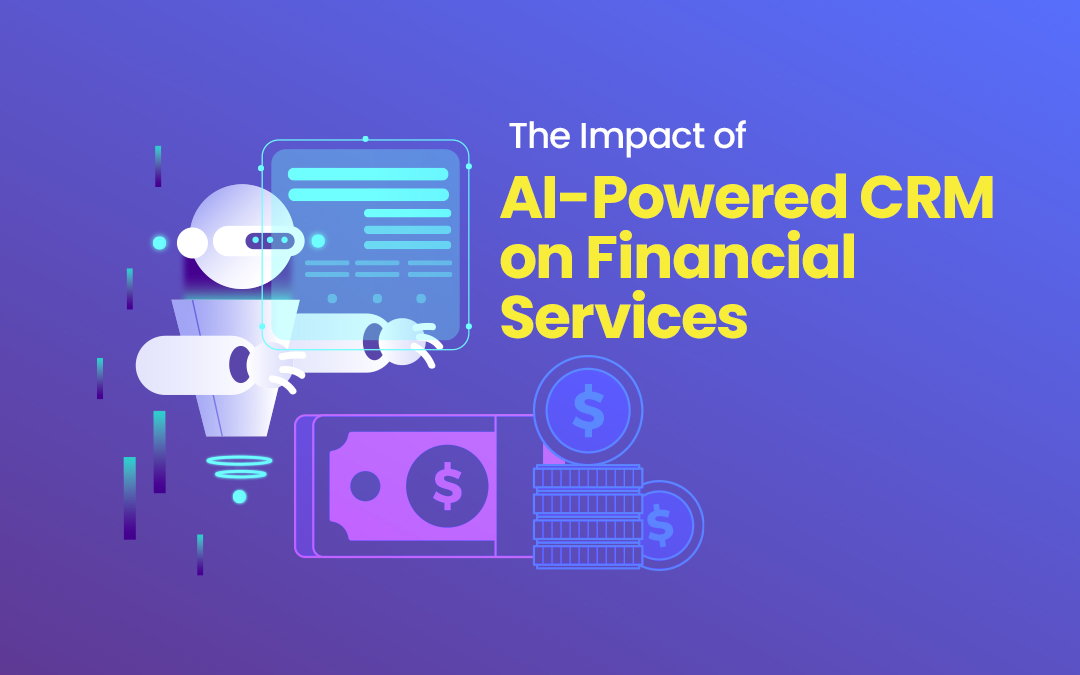
The financial services industry is undergoing a profound transformation, driven by the integration of artificial intelligence (AI) into Customer Relationship Management (CRM) systems. This powerful combination, often referred to as AI-powered financial services CRM, is revolutionizing how financial institutions interact with their clients, analyze data, and make decisions. As we delve deeper into this topic, we'll explore the multifaceted impact of AI on CRM in the financial sector, examining its applications, benefits, challenges, and future prospects.
Predictive Analytics: Anticipating Customer Needs
One of the most impactful applications of AI in financial services CRM is predictive analytics. By leveraging machine learning algorithms, financial institutions can analyze vast amounts of customer data to identify patterns and predict future behavior. This capability allows banks, insurance companies, and investment firms to anticipate customer needs and offer personalized products or services proactively.
For example, a bank's AI-powered CRM might detect that a customer's savings have reached a certain threshold and automatically suggest investment options tailored to their risk profile and financial goals. Similarly, insurance companies can use predictive analytics to assess risk more accurately, offering personalized policies and pricing based on individual customer behavior and characteristics.
Moreover, predictive analytics can help financial institutions identify potential churn risks. By analyzing patterns in customer behavior, such as decreased account activity or increased complaints, AI systems can flag at-risk customers, allowing the institution to take proactive measures to retain them.
This proactive approach not only enhances customer satisfaction but also increases the likelihood of successful cross-selling and upselling. By presenting the right offer at the right time, financial institutions can significantly improve their conversion rates and customer lifetime value.
Automated Decision-Making: Streamlining Processes
AI is also transforming decision-making processes within financial institutions. Traditional loan approval processes, for instance, often involve manual review of applications and credit histories. With AI-powered CRM systems, much of this process can be automated, leading to faster approvals and reduced human bias.
These systems can quickly analyze a customer's financial history, credit score, and other relevant data points to make informed lending decisions in a fraction of the time it would take a human analyst. This automation not only improves efficiency but also ensures consistency in decision-making across the organization.
Beyond loan approvals, AI-driven decision-making is being applied to various other areas of financial services:
- Fraud Detection: AI algorithms can analyze transaction patterns in real-time, flagging suspicious activities for immediate review and potentially preventing fraudulent transactions before they occur.
- Portfolio Management: Robo-advisors use AI to create and manage investment portfolios, automatically rebalancing assets based on market conditions and individual investor preferences.
- Regulatory Compliance: AI systems can monitor transactions and customer interactions to ensure compliance with regulatory requirements, reducing the risk of costly violations.
- Credit Scoring: AI models can incorporate alternative data sources to provide more accurate credit scores, potentially extending credit to underserved populations.

Enhanced Customer Experiences: Personalization at Scale
Perhaps the most visible impact of AI in financial services CRM is the enhancement of customer experiences. AI-powered chatbots and virtual assistants are becoming increasingly sophisticated, capable of handling complex customer inquiries and providing personalized financial advice 24/7.
These AI-driven interfaces can access a customer's entire financial profile stored in the CRM, allowing them to offer tailored recommendations and solutions. For instance, a virtual assistant might help a customer create a budget based on their spending habits, income, and financial goals, all while learning from each interaction to provide increasingly personalized service over time.
Moreover, AI algorithms can analyze customer interaction data to identify potential issues or opportunities for improvement in the customer journey. This insight allows financial institutions to continuously refine their services and address pain points proactively.
The personalization capabilities of AI extend beyond customer service interactions:
- Targeted Marketing: AI can analyze customer data to create highly targeted marketing campaigns, ensuring that customers receive relevant offers and information.
- Product Recommendations: Similar to e-commerce platforms, financial institutions can use AI to recommend financial products based on a customer's profile and behavior.
- Personalized Financial Education: AI systems can provide customized financial education content, helping customers improve their financial literacy and make better decisions.
- Tailored User Interfaces: Some institutions are experimenting with AI-driven interfaces that adapt to individual user preferences and behavior, creating a more intuitive and personalized digital banking experience.
Challenges and Considerations
While the benefits of AI-powered financial services CRM are significant, there are also challenges to consider. Data privacy and security concerns are paramount, as these systems deal with highly sensitive financial information. Financial institutions must ensure robust security measures and comply with regulations such as GDPR and CCPA.
Additionally, there's the question of transparency and explainability in AI decision-making, particularly in areas like loan approvals where decisions can have significant impacts on customers' lives. The "black box" nature of some AI algorithms can make it difficult to explain decisions to customers or regulators, potentially leading to issues of trust and compliance.
Ethical considerations also come into play. For instance, how do we ensure that AI-driven credit scoring models don't perpetuate or exacerbate existing biases? Financial institutions must carefully monitor their AI systems to ensure fair and equitable treatment of all customers.
There's also the challenge of integration. Many financial institutions have legacy systems that may not easily integrate with new AI-powered CRM solutions. The cost and complexity of modernizing these systems can be significant, potentially creating a competitive divide between institutions that can afford to implement these technologies and those that cannot.
Striking the right balance between automation and human oversight remains an ongoing challenge for the industry. While AI can handle many tasks more efficiently than humans, there will always be situations that require human empathy, judgment, and creativity.
Future Prospects
Looking ahead, the integration of AI into financial services CRM is likely to accelerate, driven by advances in technology and changing customer expectations. We can expect to see:
- More sophisticated AI models that can handle increasingly complex financial tasks and provide even more accurate predictions and recommendations.
- Greater integration of AI with other emerging technologies, such as blockchain and the Internet of Things, creating new possibilities for financial services.
- Increased use of voice and natural language processing, making interactions with financial AI systems more natural and intuitive.
- Advancements in explainable AI, addressing current challenges around transparency and decision-making.
- The emergence of new financial products and services that are only possible through the use of AI, potentially disrupting traditional business models in the industry.
Conclusion
The integration of AI into financial services CRM systems is reshaping the industry, enabling more personalized, efficient, and proactive customer service. From predictive analytics and automated decision-making to enhanced customer experiences, AI is touching every aspect of how financial institutions operate and serve their customers.
As these technologies continue to evolve, we can expect even more innovative applications that will further transform the financial services landscape. The key to success will lie in leveraging these powerful tools while maintaining a strong focus on ethical considerations, customer trust, and regulatory compliance.
Financial institutions that can successfully navigate these challenges and harness the power of AI-powered CRM will be well-positioned to thrive in an increasingly competitive and technology-driven industry. As we move forward, the fusion of AI and CRM in financial services will undoubtedly play a crucial role in shaping the future of finance, potentially leading to more inclusive, efficient, and customer-centric financial systems.
Share this post
Leave a comment
All comments are moderated. Spammy and bot submitted comments are deleted. Please submit the comments that are helpful to others, and we'll approve your comments. A comment that includes outbound link will only be approved if the content is relevant to the topic, and has some value to our readers.

Comments (0)
No comment